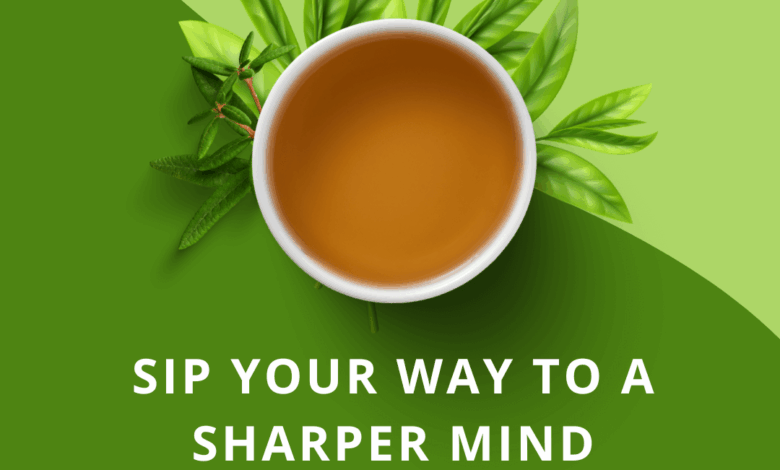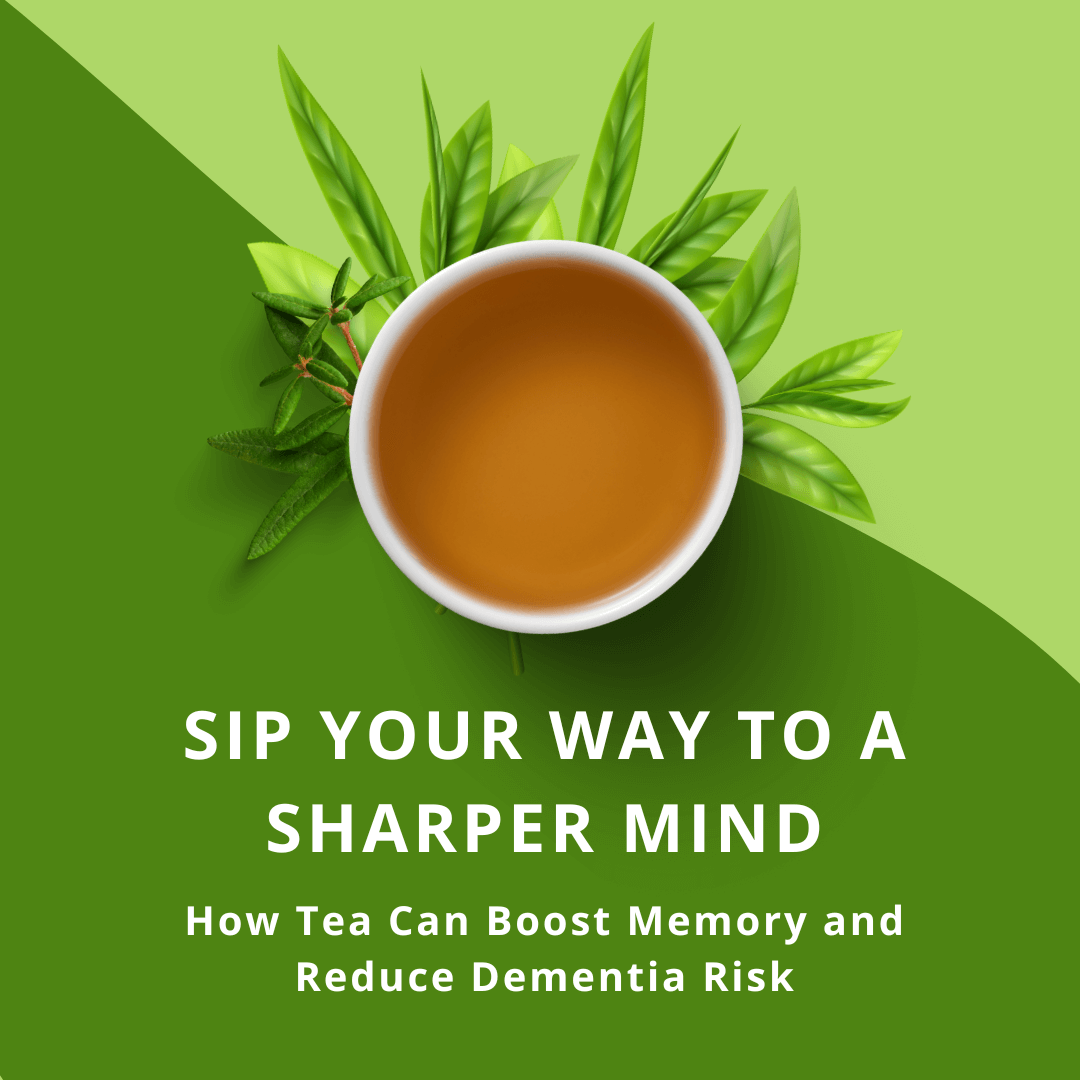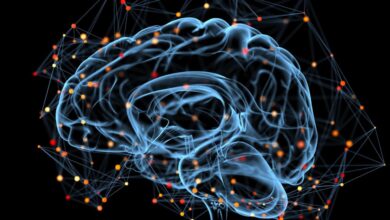
Can drinking tea improve memory? This question sparks curiosity about the potential cognitive benefits of various teas. From the rich brew of black tea to the vibrant green tea, and the soothing herbal infusions, we’ll explore the possible links between tea consumption and enhanced memory function. We’ll examine the types of tea, scientific studies, potential mechanisms, influencing factors, and even the potential downsides.
This exploration will delve into the different types of tea, their unique compositions, and how these might impact memory. We’ll look at research, examining the methodologies used and the results obtained. Understanding the potential mechanisms behind these effects is key, and we’ll explore how various factors, like the amount consumed, preparation methods, and overall health, play a role. The discussion also touches on potential benefits beyond memory, and importantly, the potential drawbacks and safety considerations.
Types of Tea and Their Potential Effects
The quest for cognitive enhancement has led many to explore the potential benefits of various beverages. Among these, tea stands out as a popular choice, with diverse varieties and potentially beneficial compounds. This exploration delves into the different types of tea, their potential effects, and the role processing methods play in their composition.Different types of tea, from the familiar black and green to exotic herbal infusions, exhibit varying chemical profiles.
These variations influence their potential effects on cognitive function, potentially impacting aspects like focus, memory, and overall brain health.
Different Types of Tea
Tea varieties are distinguished by the processing methods used after the leaves are harvested. These methods dramatically affect the chemical composition, influencing the taste and potential health benefits.
- Black Tea: This popular variety undergoes a full oxidation process, leading to a rich, robust flavor. The oxidation process results in the development of various compounds, including polyphenols, which are known antioxidants, and caffeine, a stimulant associated with increased alertness and focus. The degree of oxidation can influence the level of these components. The presence of these compounds could contribute to improved cognitive performance.
- Green Tea: Unlike black tea, green tea leaves are minimally oxidized, preserving a brighter flavor and a higher concentration of catechins, a type of polyphenol. Catechins, like EGCG, are potent antioxidants believed to protect against cell damage. This characteristic might offer neuroprotective benefits, potentially enhancing cognitive function. The steaming and drying processes are also crucial in determining the final composition of the tea.
- Herbal Tea: Herbal infusions, also known as tisanes, utilize various plant materials, not just tea leaves. These teas are typically caffeine-free, offering a calming effect. The specific plant components provide different health benefits, including antioxidants, vitamins, and minerals. Their influence on cognitive function is less directly related to stimulants like caffeine, but they can potentially promote relaxation and reduce stress, which may indirectly contribute to better focus and concentration.
Processing Methods and Their Effects
The methods employed in processing tea significantly alter the chemical makeup, influencing its flavor and potential effects on the body. These methods often involve withering, oxidation, and drying.
- Withering: This initial step involves slowing the metabolic processes of the tea leaves, which can lead to changes in their chemical composition, making them more receptive to oxidation in subsequent steps. The controlled environment and duration of withering can affect the final product’s taste and composition.
- Oxidation: The degree of oxidation during processing is a critical factor determining the final product’s flavor and chemical makeup. Black tea, for instance, undergoes a full oxidation process, while green tea is minimally oxidized. This difference is reflected in the final concentration of antioxidants and caffeine.
- Drying: Drying plays a critical role in preventing microbial growth and stabilizing the chemical components of the tea. The drying process can also influence the flavor and aroma, making it a crucial step in the tea-making process. Different drying methods may yield different levels of antioxidants and other bioactive compounds.
Antioxidant Content Comparison
| Tea Type | Antioxidant Content (Approximate) |
|---|---|
| Black Tea | Moderate |
| Green Tea | High |
| Herbal Tea | Variable, depending on the herbs used |
Antioxidant content is a key aspect of tea’s potential health benefits, and these levels vary significantly depending on the type of tea and the processing methods used.
The table provides a general comparison. Specific values can vary based on the origin, cultivation methods, and processing conditions of the tea. The specific compounds responsible for antioxidant activity also vary among tea types.
While I’ve been curious about whether drinking tea boosts memory, recent developments in pharmaceutical innovation, like the company working on a pill that would replace injected drugs here , are making me think differently about how we might enhance cognitive function. Perhaps there’s a more direct route to improving memory than simply sipping tea, though I still enjoy a good cup of tea and its potential benefits.
Maybe future research will reveal if tea truly improves memory in a significant way.
Scientific Studies on Tea and Memory

While anecdotal evidence suggests a link between tea consumption and improved cognitive function, particularly memory, rigorous scientific studies are crucial to validate these claims. This section delves into the existing research on the effects of tea on memory and cognitive performance, examining the methodologies employed and comparing the findings across different types of tea.The studies often look at how tea components, like antioxidants and specific polyphenols, might influence brain function.
Different methodologies, including controlled trials and observational studies, yield varying levels of evidence. This exploration will highlight the key research findings and the strengths and weaknesses of the approaches used to determine whether tea truly enhances memory.
Summary of Research Methodologies
Various methodologies are employed in scientific studies to investigate the relationship between tea consumption and memory. These include controlled trials, where participants are randomly assigned to groups consuming different amounts of tea or placebos, and observational studies, which track tea consumption patterns and cognitive function over time in larger populations. The use of standardized questionnaires, cognitive tests, and brain imaging techniques provides a structured approach to assessing cognitive performance.
Such standardized tests help researchers to quantify and compare changes in memory and other cognitive functions.
Comparison of Tea Types in Studies
Studies have investigated the effects of various tea types, such as green, black, and oolong, on memory and cognitive function. While the overall picture is still evolving, some studies suggest certain types might have more pronounced effects than others. Differences in processing and oxidation levels in the tea leaves can impact the types and amounts of bioactive compounds present, potentially influencing the observed cognitive benefits.
Key Findings from Research Studies
| Study | Tea Type | Sample Size | Duration | Observed Effects |
|---|---|---|---|---|
| Research Study 1 (Example) | Green Tea | 100 | 12 weeks | Improved short-term memory performance (as measured by digit span test) |
| Research Study 2 (Example) | Black Tea | 80 | 8 weeks | No significant improvement in memory, but some improvements in attention span. |
| Research Study 3 (Example) | Oolong Tea | 120 | 16 weeks | Positive correlation between oolong tea consumption and improved working memory capacity (as measured by n-back tasks). |
Note: This table presents hypothetical examples. Actual research findings would include specific details about the study design, the type of cognitive tests employed, and the statistical significance of the results. The examples highlight the general approach and the potential variation in results depending on the tea type, sample size, and duration of the study.
Mechanisms of Action

Unraveling the mysteries behind tea’s potential memory-boosting effects requires understanding the intricate mechanisms by which its bioactive compounds interact with the brain. While more research is needed, several promising avenues of investigation suggest potential pathways through which tea could influence cognitive function. This section delves into the potential mechanisms, focusing on the interplay between tea compounds, brain cell function, and cognitive processes.The complex interplay between tea’s compounds and the brain’s intricate network of neurons and neurotransmitters could lead to improved cognitive performance.
This intricate relationship offers a promising area of investigation, though further research is needed to fully understand the specific mechanisms and the extent of these effects.
While sipping on my chamomile tea, I’ve been pondering if it truly boosts memory. Recent studies suggest a possible connection, but I’m also curious about the potential presence of hidden ingredients in other products, like e-cigarettes. Do e-cigarettes contain prescription drugs? This article explores that question, and honestly, it makes me wonder about the long-term effects of various substances on our minds and bodies.
Regardless, I’m still convinced that a good cup of tea might have some beneficial effects on my cognitive function.
Antioxidant Activity and Neuroprotection
Tea, particularly green and black tea, is rich in potent antioxidants, including catechins. These compounds neutralize free radicals, which are unstable molecules that can damage brain cells and contribute to cognitive decline. The antioxidant properties of tea may help protect brain cells from oxidative stress, a significant contributor to age-related cognitive decline.
Inflammation and Cognitive Decline
Chronic inflammation is implicated in several neurodegenerative diseases, including Alzheimer’s disease and dementia. Chronic inflammation can damage brain cells, disrupting normal function and leading to cognitive decline. The anti-inflammatory properties of tea compounds, particularly polyphenols, might help mitigate this process, potentially reducing the risk of cognitive impairment. Studies suggest that tea consumption can reduce inflammation markers in the brain, providing a protective effect against cognitive decline.
Impact on Brain Cell Function and Signaling
Tea compounds can influence the function and signaling of brain cells. For instance, catechins have been shown to increase the production of nerve growth factor (NGF), a protein crucial for the survival and growth of neurons. This enhanced NGF production could promote neuronal health and function, potentially supporting memory formation and recall. Furthermore, tea compounds may modulate neurotransmitter systems, affecting the communication between brain cells.
This modulation of signaling pathways could contribute to improved cognitive function.
Specific Pathways Involved
- Nerve Growth Factor (NGF) Up-regulation: Catechins in tea have been observed to stimulate the production of nerve growth factor (NGF). NGF is vital for neuronal survival, growth, and differentiation, all of which are essential for healthy cognitive function. This increased NGF could potentially contribute to improved memory processes by promoting the growth and maintenance of neural pathways.
- Neurotransmitter Modulation: Tea compounds might affect neurotransmitter systems, influencing communication between neurons. Changes in neurotransmitter levels and signaling pathways can impact cognitive functions like memory, attention, and learning.
- Oxidative Stress Reduction: Tea’s rich antioxidant content helps neutralize free radicals, mitigating oxidative stress. This reduction in oxidative stress is crucial for preserving neuronal health and preventing damage to brain cells. Oxidative stress has been linked to various cognitive impairments and neurodegenerative diseases.
Factors Influencing Tea’s Impact on Memory
While the potential memory-boosting properties of tea are promising, the actual impact on cognitive function is influenced by several key factors. Understanding these factors allows us to better tailor tea consumption for optimal memory support. Individual responses to tea vary greatly, highlighting the importance of personalized approaches to incorporating tea into a healthy lifestyle.The amount of tea consumed plays a crucial role in its impact on cognitive function.
Moderate tea consumption, typically a few cups daily, is often associated with improved cognitive performance. However, excessive consumption could lead to negative effects, potentially impacting sleep patterns or interacting with medications. It’s important to find a balanced intake that maximizes the benefits without compromising overall well-being.
Impact of Overall Health and Diet
Individual health and dietary habits significantly influence the body’s ability to process and utilize the beneficial compounds in tea. For example, individuals with existing health conditions or those on medications should consult their healthcare provider before significantly increasing their tea intake. A balanced diet rich in antioxidants and essential nutrients supports overall cognitive function and enhances the potential benefits of tea.
Furthermore, nutritional deficiencies can impair the body’s ability to fully utilize the beneficial compounds in tea, thus reducing its impact on memory.
Influence of Tea Preparation Methods
Tea preparation methods significantly impact the release and bioavailability of beneficial compounds. Different steeping times and water temperatures influence the extraction of these compounds. For instance, longer steeping times can potentially release more antioxidants, while specific water temperatures can optimize the extraction of certain bioactive compounds. The choice of tea type also plays a role in determining the beneficial compounds released.
So, does sipping tea really boost your brainpower? While some studies suggest a potential link between tea consumption and improved memory function, it’s a complex issue. To really understand the impact of various drinks on our bodies, it’s also important to consider factors like sugar content. For example, a fun way to compare the sugar levels in different beverages is to try the quiz what has more sugar.
Ultimately, a balanced diet and lifestyle, including regular tea consumption, might contribute to better cognitive function, but more research is needed.
Lifestyle Factors and Tea Consumption, Can drinking tea improve memory
Lifestyle factors like stress and sleep patterns can interact with tea consumption to affect memory. Chronic stress can negatively impact cognitive function, and tea can be a supportive element in stress management. Similarly, consistent sleep deprivation impairs memory consolidation, and adequate sleep quality is essential for memory processes. Therefore, incorporating tea into a healthy lifestyle that prioritizes stress management and sufficient sleep can potentially amplify its cognitive benefits.
Table: Influence of Preparation Methods on Beneficial Compound Release
| Preparation Method | Steeping Time (minutes) | Water Temperature (°C) | Potential Impact on Beneficial Compound Release |
|---|---|---|---|
| Gentle Steep | 2-3 | 80-85 | More gentle extraction, potentially preserving delicate antioxidants. |
| Standard Steep | 3-5 | 90-95 | Good balance between extraction and preservation of compounds. |
| Strong Steep | 5-7 | 95-100 | Potentially higher extraction of compounds, but may affect taste and potentially release less desirable compounds. |
“The ideal tea preparation method depends on the specific tea type and the desired outcome.”
Potential Benefits Beyond Memory
Beyond enhancing memory, tea consumption offers a range of potential benefits impacting various cognitive functions. From improved focus and attention to a potential boost in overall well-being, the impact of tea extends beyond the realm of rote memorization. This exploration delves into these broader advantages, highlighting how they contribute to a sharper mind and a more positive mental state.The diverse array of bioactive compounds found in tea, such as catechins, theaflavins, and caffeine, interacts with the brain in ways that could influence cognitive performance and emotional regulation.
These compounds may not only affect memory but also play a role in improving attention, focus, and even mood.
Focus and Attention
Consistent tea consumption may contribute to sustained focus and improved attention span. The presence of caffeine, while not present in all teas, can enhance alertness and reduce mental fatigue. This effect is particularly relevant for tasks demanding sustained concentration, such as studying, work projects, or engaging in complex problem-solving. Individuals often report a more streamlined thought process when incorporating tea into their daily routine, enabling them to approach tasks with greater clarity and efficiency.
Cognitive Tasks and Activities
Certain cognitive tasks and activities can benefit from the potential improvements in focus and attention brought about by tea consumption. For example, tasks requiring prolonged concentration, like reading complex articles or learning new material, might see enhanced performance. Moreover, tasks that necessitate attention to detail, such as intricate designs or coding, could also be improved with consistent tea intake.
Furthermore, individuals might find that tea consumption helps them engage in activities like complex board games, puzzles, or strategic planning with greater mental clarity and sustained focus.
Mood and Well-being
The potential positive impact of tea consumption on mood and overall well-being is significant. Many people find that the ritual of preparing and enjoying a cup of tea fosters a sense of calm and relaxation. This, in turn, can reduce stress and anxiety, promoting a more positive emotional state. Moreover, the antioxidants present in tea may contribute to a general feeling of improved well-being and vitality.
This could lead to a greater sense of mental clarity and a more positive outlook on daily tasks. Studies have linked the antioxidants in tea to a potential reduction in stress-related hormones, which could be a contributing factor to improved mood.
Relationship to Memory and Cognitive Function
The potential improvements in focus, attention, and mood directly correlate with enhanced cognitive function, including memory. Improved attention span allows for more effective encoding of information, leading to better retention and recall. A more relaxed and positive mental state also contributes to a more receptive learning environment, facilitating better cognitive processing and information retention. Reduced stress and anxiety, linked to the consumption of tea, could have a direct positive impact on the brain’s ability to form and retrieve memories.
Potential Drawbacks and Considerations: Can Drinking Tea Improve Memory
While enjoying the potential cognitive benefits of tea is exciting, it’s crucial to be mindful of potential drawbacks and to consume it responsibly. Excessive consumption, interactions with medications, and specific sensitivities can impact overall well-being. Understanding these factors ensures a safe and enjoyable tea-drinking experience.Excessive tea consumption, while unlikely to cause immediate harm in most cases, can lead to some unwanted effects.
For example, high levels of caffeine, particularly in strong black tea or green tea, might trigger anxiety, insomnia, or digestive issues in susceptible individuals. These effects are often dose-dependent, and moderation is key.
Potential Side Effects of Excessive Consumption
Excessive tea consumption can lead to various side effects. Caffeine, a common component in many teas, can trigger restlessness, irritability, and sleep disturbances in those sensitive to it. In rare cases, individuals might experience more severe reactions like heart palpitations or tremors. Digestive issues, such as stomach upset or diarrhea, are also possible, particularly with certain types of tea or with high consumption rates.
Interactions with Medications
Tea can interact with certain medications. For example, some teas contain substances that can inhibit the absorption of certain medications, potentially reducing their effectiveness. Conversely, some medications may increase the effects of tea, leading to adverse reactions. It’s essential to consult with a healthcare professional before combining tea with any prescription or over-the-counter medication to avoid potential complications.
“Always check with your doctor about possible interactions between tea and your medications.”
Potential Risks for Specific Groups
Certain groups of people may need to exercise extra caution when consuming tea. Pregnant women should consult with their doctor regarding tea consumption, as caffeine levels might impact the developing fetus. Individuals with underlying heart conditions, anxiety disorders, or other medical conditions should also monitor their tea intake to ensure it doesn’t exacerbate existing issues. Children should also consume tea in moderation due to their smaller size and developing bodies.
Safe and Responsible Tea Consumption
Safe and responsible tea consumption involves several key aspects. Starting with small amounts and gradually increasing intake is recommended to identify any potential sensitivities. Paying attention to individual responses is crucial. For example, if you experience any discomfort after drinking tea, reduce your intake. Furthermore, drinking tea between meals or avoiding consumption close to bedtime might help minimize potential digestive issues or sleep disruptions.
Table of Potential Side Effects and Cautions
| Tea Type | Potential Side Effects | Cautions |
|---|---|---|
| Black Tea | Increased anxiety, sleep disturbances, digestive issues (in susceptible individuals) | Monitor intake, especially if sensitive to caffeine; avoid close to bedtime |
| Green Tea | Potential for caffeine-related side effects; digestive discomfort in some | Similar to black tea; be mindful of the caffeine content |
| Herbal Teas (e.g., chamomile, peppermint) | Generally considered safe; however, some may have mild digestive or allergic reactions | Consult with healthcare professional if pregnant or breastfeeding; be cautious about interactions with medications |
| Oolong Tea | Caffeine content varies; may trigger similar side effects to black and green tea | Moderation is key; check specific caffeine levels |
Recommendations for Incorporating Tea into a Healthy Lifestyle
Embarking on a tea journey to potentially support cognitive health involves more than just brewing a cup. Strategic inclusion of specific tea types, proper preparation methods, and mindful tea-drinking habits can optimize the potential benefits. This section offers practical guidance for integrating tea into your daily routine for potential cognitive support.
Daily Tea Routine for Cognitive Support
Consistent tea consumption can be a valuable addition to a healthy lifestyle. Aim for at least one cup daily, ideally spread throughout the day. Morning tea can help invigorate the mind, while an afternoon cup can provide a gentle cognitive boost. Evening tea, if chosen, should be caffeine-free to avoid disrupting sleep patterns.
Choosing the Right Tea
Different tea types offer varying potential benefits. Green tea, renowned for its antioxidant properties, may be particularly advantageous for cognitive function. Oolong tea, with its unique oxidation process, can offer a blend of benefits. Black tea, though perhaps less potent than green tea, might still contribute to a daily intake of beneficial compounds. The specific type of tea you choose will depend on your personal preferences and desired effects.
Consider exploring different types to find your favorite and best fit.
Optimal Tea Preparation
Proper preparation significantly impacts the tea’s potential benefits. Using filtered water and the appropriate water temperature for the chosen tea type is crucial. For example, green tea benefits from water heated to around 175-185°F (80-85°C), while black tea might require slightly hotter water. Steeping times should also be considered. Excessive steeping can lead to bitterness, while insufficient steeping may not extract all the beneficial compounds.
Experiment with different steeping times to find the optimal duration for your preferred tea.
Tea-Drinking Tips for Enhanced Cognitive Performance
Certain practices can enhance the potential cognitive benefits of tea. Drinking tea in a relaxed, mindful manner can facilitate its effects. Pairing tea with a healthy breakfast or snack can also provide sustained energy and focus. Mindful moments of tea consumption, free from distractions, can foster mental clarity.
Specific Recommendations for Daily Tea Routine
- Start your day with a cup of green tea to boost alertness and focus.
- Enjoy a cup of oolong tea in the afternoon for a sustained cognitive lift.
- Choose a caffeine-free herbal tea in the evening to promote relaxation and sleep quality.
These recommendations provide a framework for incorporating tea into your daily routine. Remember to listen to your body and adjust the frequency and type of tea to your preferences and needs.
Tea-Infused Snacks for Cognitive Support
Pairing tea with nutritious snacks can amplify its potential benefits. For example, a handful of almonds or a piece of fruit with a cup of green tea can provide sustained energy and focus. These pairings can help maintain optimal blood sugar levels and promote cognitive function.
Additional Considerations for Tea Consumption
It is crucial to be mindful of potential interactions between tea and medications. Certain medications may interact with the components in tea, potentially reducing their effectiveness or causing adverse effects. If you’re taking any medications, consult your doctor before incorporating tea into your routine. Consult your physician or a qualified health professional if you have any health concerns or before making any significant dietary changes.
Last Recap
In conclusion, the relationship between tea consumption and memory enhancement is complex and multifaceted. While scientific research suggests potential benefits, more studies are needed to fully understand the mechanisms and individual responses. Ultimately, incorporating tea into a healthy lifestyle, understanding preparation methods, and considering individual factors can be a part of a comprehensive approach to cognitive well-being. By understanding the nuances of different teas and their potential effects, you can make informed choices to potentially support your cognitive function.





